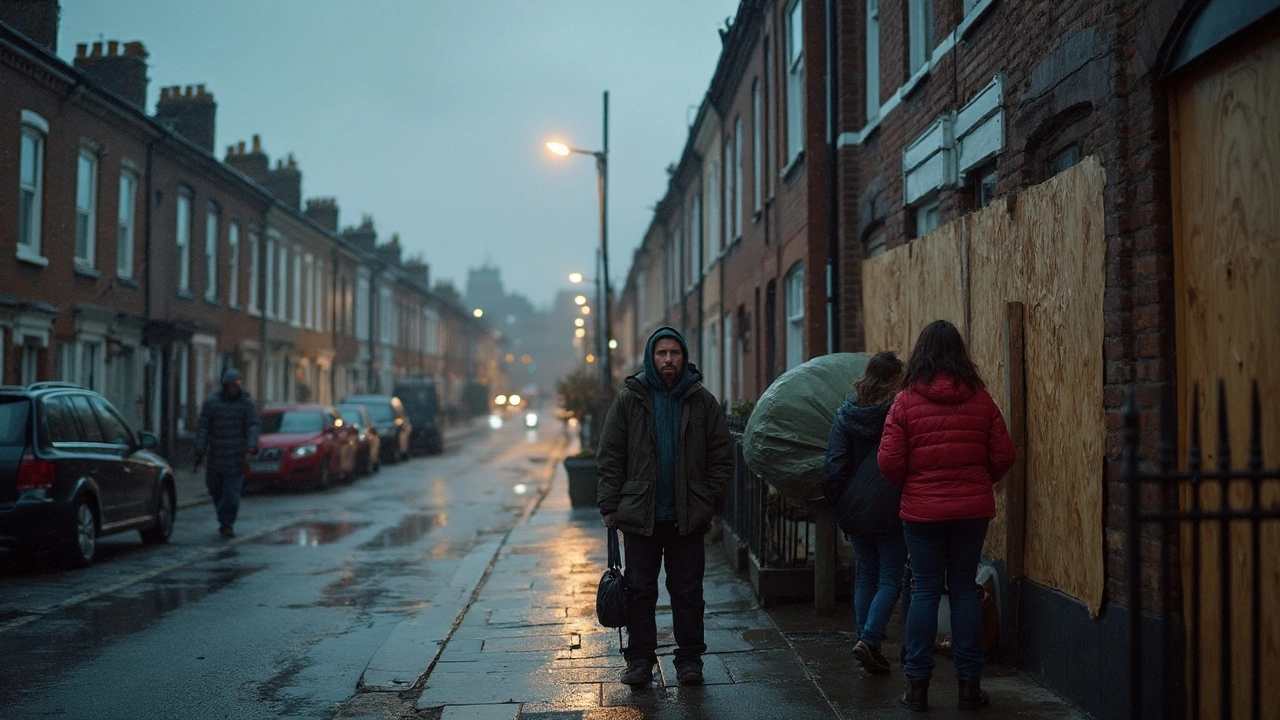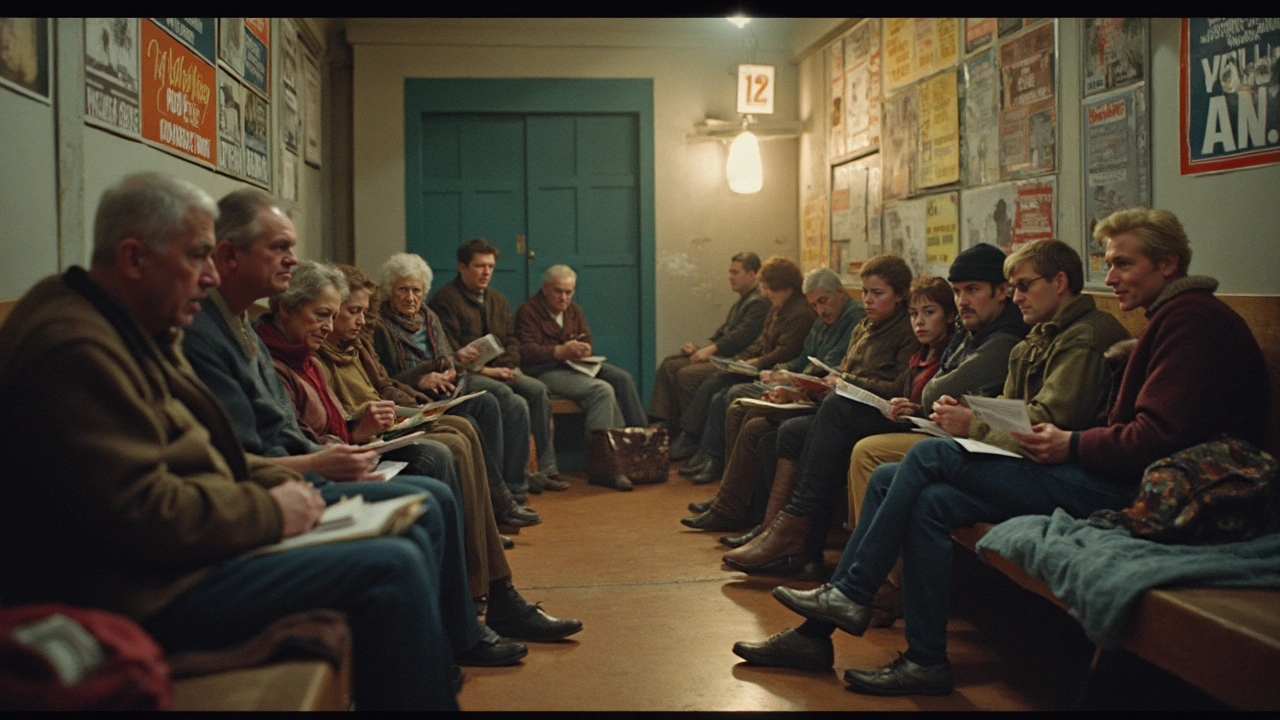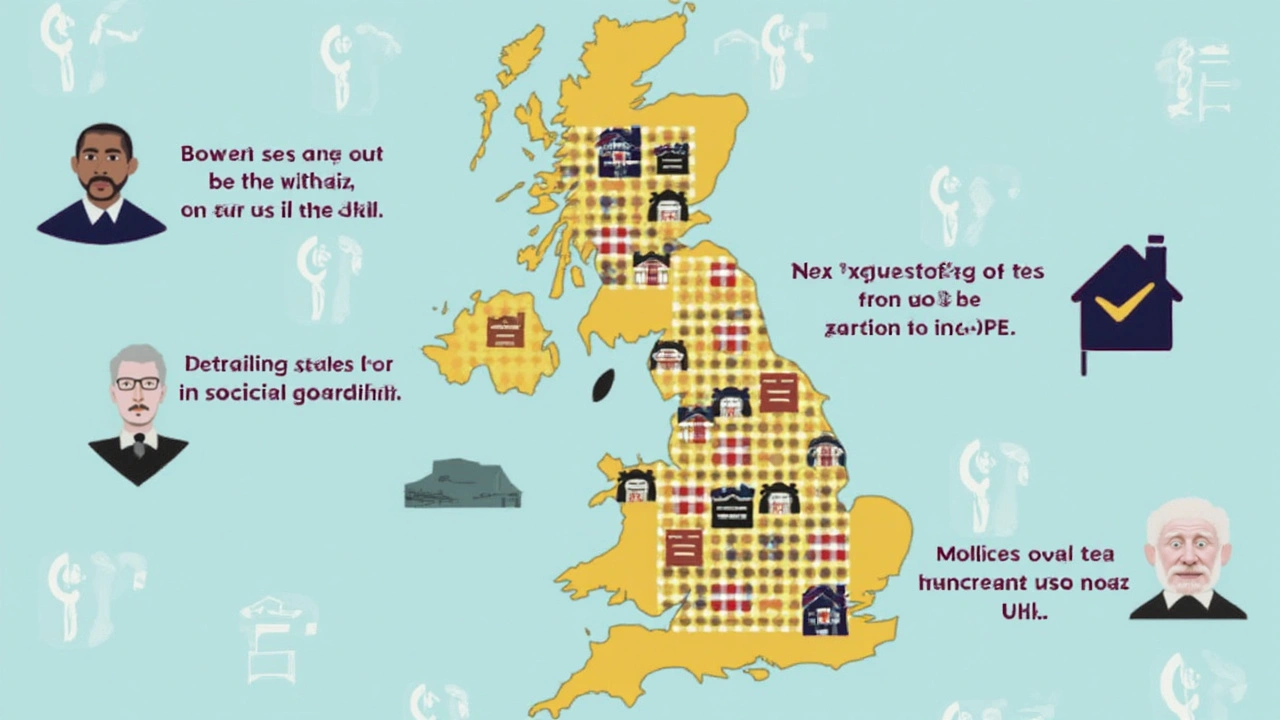
Every night, nearly 280,000 people in the UK are either sleeping rough, in hostels, or stuck in temporary accommodation. It’s easy to blame personal mistakes or bad decisions, but that just doesn’t match what’s really happening out there. The number one thing pushing people into homelessness? The cost of having a roof over your head has gone through the roof—especially if you’re renting.
Private rents are breaking records, and the pool of affordable social housing has shrunk. Right now even working people, families, and pensioners are being priced out of their homes. You’ve probably seen social media posts or news stories about families living out of hotels for months or sleeping in cars—this isn’t an exaggeration. The faces behind the stats could just as easily be your neighbor, a friend, or even you if one thing goes wrong.
- The Hard Numbers: How Bad Is Homelessness?
- Why Can’t People Afford to Stay?
- Universal Credit and Its Downfalls
- The Social Housing Shortage
- What Can You Do If You’re at Risk?
The Hard Numbers: How Bad Is Homelessness?
If you scroll past headlines, the scale of homelessness in the UK right now is pretty staggering. According to official government figures and big charities, you’re looking at over 280,000 people experiencing homelessness at any time. That’s not just people on the street—most are families and kids stuck in temporary accommodation, hostels, or overcrowded rooms.
What’s changed in just a couple of years? Here’s a breakdown of the numbers that really spell out the crisis:
| Year | Total Homeless (est.) | Households in Temporary Accommodation | Children in Temporary Accommodation | Rough Sleepers (single night count) |
|---|---|---|---|---|
| 2022 | 271,000 | 95,000 | 125,000 | 3,069 |
| 2024 | 282,000 | 109,000 | 142,000 | 3,898 |
What surprises a lot of people is that rough sleepers—those actually out on the streets—make up just a tiny slice of the total. Most of the homelessness UK crisis is hidden in B&Bs or temporary flats. The number of kids without a permanent home is at its highest since records began; schools are reporting students turning up late or missing class because they don’t have a real place to eat, sleep, or do homework.
Another thing worth knowing: over 60% of people who approach local councils for homelessness help have a history of private renting. Evictions (often 'no-fault' ones) are spiking, and London has more than a third of the UK’s temporary accommodation cases. But this problem isn’t just a big city headache—places like Manchester, Birmingham, and Bristol are seeing record rises too.
If you care about what’s happening in your community, these aren’t just numbers—they’re families, pensioners, and young people pushed to the edge. Understanding the scale helps make sense of what’s broken and what needs fixing next.
Why Can’t People Afford to Stay?
The truth is, having a job doesn’t guarantee a safe place to live anymore. Over the last five years, the cost of renting has exploded, especially in cities like London and Manchester. Wages haven’t kept up, so even folks working full-time are in trouble. According to Shelter, a third of renters spent at least half their income just on rent last year. That means if anything unexpected happens—a job loss, a health scare, a family emergency—people have zero room to handle it before falling behind.
Landlords know demand is off the charts. It’s not rare to see twenty people show up to view one flat, so rents go up and landlords can be pickier. Some push tenants out for higher-paying renters, and that’s legal if your contract is up or if you’re on a rolling monthly agreement.
Here’s a look at some blunt numbers:
| Region | Average Private Rent (2024) | Average Weekly Wage (2024) |
|---|---|---|
| London | £2,119/month | £820 |
| Manchester | £1,300/month | £610 |
| Birmingham | £1,075/month | £575 |
| Cardiff | £1,050/month | £540 |
It isn’t just about the rent, though. Energy bills have gone sky-high, food’s more expensive, and transport costs have jumped. There’s less money left to save for emergencies. Even a normal rent increase—say £100 more a month—can tip someone into trouble. Not everyone has family to lean on or savings to dip into.
- If you’re facing rising rent, talk to your landlord early; some are open to keeping good tenants if you negotiate.
- Check if you qualify for a Discretionary Housing Payment from your local council.
- If you’ve missed a rent payment, contact housing advice charities like Shelter right away—they can help stop an eviction.
This is why the homelessness UK situation isn’t about just bad life choices. It’s a system that’s turning housing into something a lot of people just can’t hold onto, no matter how hard they try.

Universal Credit and Its Downfalls
If we’re talking about what’s keeping people on the brink in the UK, Universal Credit definitely comes up. This benefit was supposed to make things simpler, rolling six different payments into one. In reality, it’s left loads of people short and waiting. When someone applies for Universal Credit, there’s usually a five-week wait before any money drops. Most renters don’t have a stash of cash to cover that gap, and even a week or two can mean missing rent and slipping into arrears.
Another problem: Universal Credit often doesn’t cover the full cost of today’s rent. Rents have climbed, but the housing payment part of Universal Credit hasn’t kept up. People are left to top up with cash they just don’t have. That’s a key reason why so many are being pushed into homelessness, especially in high-rent areas like London, Manchester, and Bristol.
Here’s some hard data that shows what’s really happening:
| Issue | Fact |
|---|---|
| Universal Credit Wait Time | Standard wait is 5 weeks—many take out emergency loans just to get by |
| Rent Shortfall | Nearly half of private renters on Universal Credit have a shortfall between their rent and their housing payment |
| Evictions | Landlords serve Section 21 "no-fault" eviction notices more to tenants on Universal Credit |
It’s even rougher for people who hit problems with paperwork or those who don’t have easy internet access. Missed forms or errors can freeze payments. And if you’re paid Universal Credit monthly but your landlord wants rent weekly, good luck keeping up. This mismatch leaves too many honest people scrambling.
So if you’re on Universal Credit and worried about losing your home, here’s what you can do:
- Contact your local council early and explain your situation. Many have teams ready to help if you’re at risk.
- Check if you’re getting the right payment—mistakes with rent rates happen all the time.
- If you’re struggling with the five-week wait, apply for an advance payment, but be careful—it’ll come out of later payments.
- Look up local charities or advice lines like Shelter or Citizens Advice—they can walk you through appeals or help with urgent support.
If you're facing the homelessness UK crisis because of Universal Credit, you’re far from alone—and there are steps to take before things get worse.
The Social Housing Shortage
If there’s one thing everyone in the homeless sector talks about, it’s the chronic lack of social housing. In the UK, the actual number of social homes being built has hit rock bottom compared to past decades. Back in the 1970s, the country was building over 100,000 social homes a year. Jump to now, and you’re looking at less than 9,000 a year according to Shelter’s 2024 data. That’s a drastic drop.
The waiting lists are long—really long. As of early 2025, more than 1.25 million households are waiting for a council home in England. Some folks are stuck on the list for over a decade, relying on short-term fixes like temporary accommodation that’s often cramped and expensive for councils to run.
| Year | Social Homes Built | Households on Waiting List (England) |
|---|---|---|
| 1977 | ~120,000 | Not recorded |
| 2010 | 33,000 | 1,700,000 |
| 2024 | 8,400 | 1,250,000+ |
So what’s causing the drought? For starters, a lot of old council homes got sold off under Right to Buy and just weren’t replaced. Local council budgets haven’t bounced back since the 2010s, so there’s not much cash to build new housing. Private rents fill some of the gap, but rents keep getting higher while wages and benefits stand still. That means more people are stuck in limbo, either shelling out most of their income to a landlord or hoping the council finally gives them a place.
For anyone searching for homelessness UK solutions, the experts agree you can’t fix the problem until more social homes are available and proper funding gets sorted. Shortcuts—like using hotels or temporary flats—aren’t solving the main problem. If you’re on a waiting list now, keep your paperwork updated and check in with your council every few months. If you’re not sure what you’re eligible for, groups like Shelter or Citizens Advice can walk you through the process.

What Can You Do If You’re at Risk?
Facing the threat of losing your home? It feels overwhelming, but you’re far from alone. Over 110,000 households in England alone were threatened with homelessness in 2024, according to Shelter. The key is to act fast—the sooner you get help, the better your chances.
“People often wait until it's too late. If you contact Shelter or your local council as soon as you get an eviction notice, your options are much better,” says Polly Neate, Chief Executive of Shelter.
Here’s what to do if you think you might lose your home:
- homelessness UK: Reach out to your local council’s housing department. By law, they have to help anyone at risk of becoming homeless within 56 days.
- Get advice from Shelter, Crisis, or Citizens Advice. These charities can help deal with landlords, fill out forms, and explain your rights.
- If you’ve gotten an eviction notice, don’t leave straight away. Check if the notice was served legally. Sometimes mistakes give you more time or let you challenge the eviction.
- Apply for a Discretionary Housing Payment from your council if you’re on Universal Credit or housing benefit. This can cover short-term rent gaps.
- Talk to your landlord. If you’ve got rent arrears, see if you can arrange a payment plan. Some landlords will listen, especially if you’re upfront about your situation.
Here’s a quick look at some useful numbers and support claims across the UK for 2025:
| Support Option | Where to Get Help | Number Helped (2024) |
|---|---|---|
| Local Authority Homelessness Duty | Council Housing Office | 284,000 households |
| Shelter Helpline | 0808 800 4444 | 32,500 people |
| Discretionary Housing Payment | Local Council | 120,000 households |
| Crisis Advice Service | crisis.org.uk | 18,000 beneficiaries |
Don’t wait things out hoping it’ll somehow work. Most help is only available if you ask early. Hang on to all paperwork—eviction letters, rent statements, even texts or emails from your landlord. The more details you bring, the more useful the help will be.
Homelessness services are stretched but they exist to stop people falling through the cracks. If you or someone you know is in trouble, get advice right away. A five-minute phone call or email can make all the difference between losing your home and finding a way through.